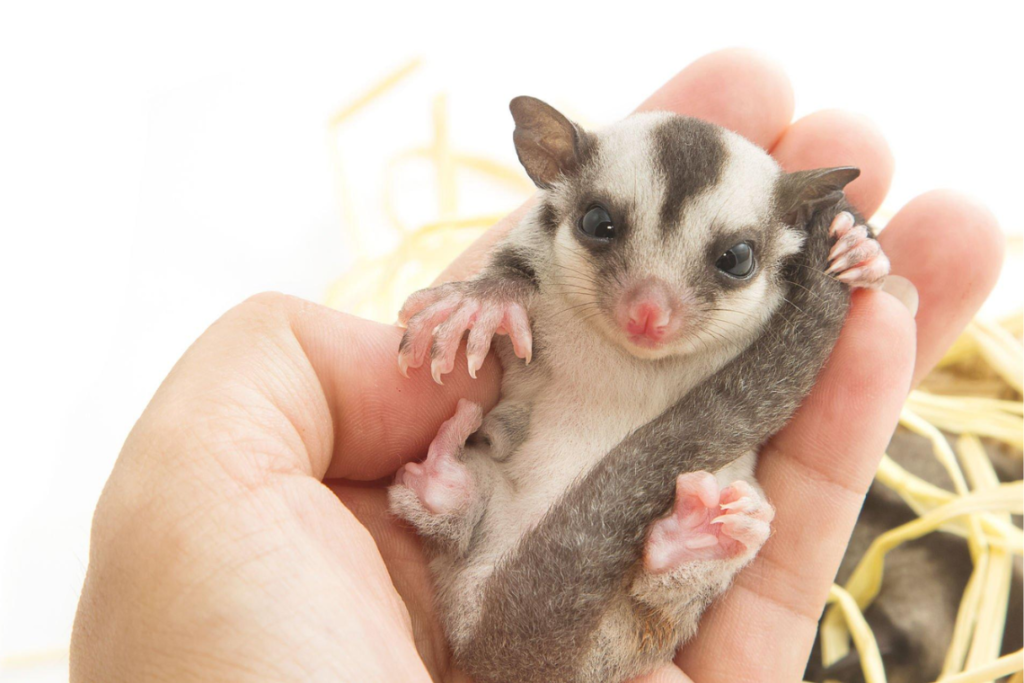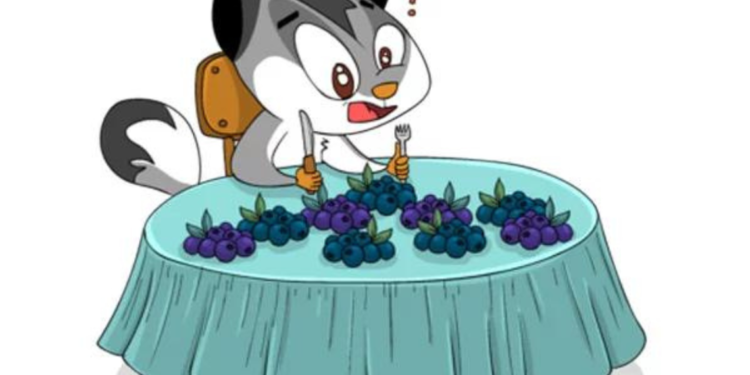Sugar gliders are adorable and unique pets known for their small size and gliding abilities. As a responsible sugar glider owner, it is crucial to provide them with a balanced and nutritious diet. Fruits play a vital role in meeting their dietary requirements, and blueberries often come to mind as a healthy option. In this article, we will explore whether are blueberries safe for sugar gliders to consume, considering their nutritional needs and potential risks.
Introduction
Sugar gliders are omnivores, which means their diet consists of both plant material and animal protein. In the wild, they feed on a variety of fruits, nectar, tree sap, insects, and even small vertebrates. As pets, replicating their natural diet is essential for their overall well-being and health.
What are Sugar Gliders?
Sugar gliders, scientifically known as Petaurus breviceps, are small marsupials native to Australia, Indonesia, and New Guinea. They have a gliding membrane that allows them to glide between trees, making them excellent climbers. Due to their social nature and cute appearance, sugar gliders have gained popularity as pets in recent years.
The Benefits of Blueberries
Blueberries are known for their rich antioxidant content, which can provide various health benefits. Antioxidants help protect the body against harmful free radicals and reduce the risk of certain diseases. Blueberries are also a good source of vitamin C, vitamin K, and dietary fibre. These nutrients contribute to a healthy immune system, strong bones, and good digestion.
Are Blueberries Safe for Sugar Gliders?
Yes, blueberries are generally safe for sugar gliders to consume in moderation. However, it’s important to note that blueberries should only make up a small part of their overall diet. While sugar gliders enjoy the taste of blueberries and can benefit from their nutrients, an excessive amount can lead to digestive upset or diarrhoea due to their high sugar content.
Risks and Precautions
When feeding blueberries to sugar gliders, it’s crucial to exercise caution and follow some precautions:
Moderation: Offer blueberries as a treat rather than a staple food. They should not exceed more than 10% of their overall diet.
Organic and Washed: Choose organic blueberries whenever possible to reduce exposure to pesticides. Thoroughly wash the berries before feeding them to your sugar gliders.
Fresh and Ripe: Opt for fresh and ripe blueberries to ensure they are at their peak nutritional value. Avoid feeding mouldy or spoiled berries.
Remove Seeds: Sugar gliders should not consume blueberry seeds as they can be a choking hazard. Remove the seeds before serving.
How to Feed Blueberries to Sugar Gliders

Sugar Gliders
To feed blueberries to your sugar gliders, follow these steps:
- Start by offering a small piece of blueberry to see if your sugar glider enjoys it.
- If they show interest and tolerate it well, you can provide a few small pieces as an occasional treat.
- Remember to cut the blueberries into small, bite-sized portions to make it easier for your sugar glider to consume.
- Monitor their response and digestion after consuming blueberries to ensure they tolerate them well.
Nutritional needs of sugar gliders
To keep sugar gliders healthy, it is crucial to understand their nutritional needs. A balanced diet is essential for their growth, development, and overall vitality. The key nutrients required by sugar gliders include proteins, carbohydrates, fats, vitamins, and minerals.
- The importance of a balanced diet
A well-balanced diet provides sugar gliders with the necessary energy, macronutrients, and micronutrients. It supports their immune system, promotes healthy growth, and helps prevent nutritional deficiencies. A varied diet ensures that sugar gliders receive all the essential nutrients they need.
- Key nutrients for sugar gliders
Proteins play a vital role in the diet of sugar gliders. They are necessary for muscle development, tissue repair, and overall growth. Good protein sources for sugar gliders include lean meats, insects, and protein-rich fruits.
Carbohydrates are another essential component of a sugar glider’s diet. They provide a source of energy and fibre. Fruits and vegetables are natural sources of carbohydrates for sugar gliders.
Fats are also important, as they provide energy and help absorb fat-soluble vitamins. However, the fat content in a sugar glider’s diet should be monitored to prevent obesity.
Vitamins and minerals are crucial for various bodily functions. Calcium, phosphorus, and vitamin D3 are particularly important for maintaining healthy bones and teeth in sugar gliders.
Can sugar gliders eat blueberries?

Now, let’s address the question of whether blueberries are safe for sugar gliders to consume.
General considerations
Sugar gliders can enjoy a variety of fruits as part of their diet. However, it’s important to remember that their diet should be diverse and balanced. While blueberries offer nutritional benefits, they should be introduced in moderation and alongside other suitable fruits.
Moderation is key
Blueberries, like other fruits, should be given to sugar gliders in moderation. Their small size means they have specific dietary requirements, and excessive fruit consumption can lead to imbalances and nutritional deficiencies. It’s best to provide blueberries as an occasional treat rather than a staple food.
Other Safe Fruits for Sugar Gliders
While blueberries are generally safe, it’s essential to offer a variety of fruits to ensure a balanced diet. Some other safe fruits for sugar gliders include:
- Apples (without seeds and core)
- Grapes (seedless)
- Bananas
- Papayas
- Watermelons
Remember to introduce new foods gradually and in small amounts to avoid digestive issues.
Conclusion
Blueberries can be safely included in the diet of sugar gliders as long as they are fed in moderation. Their antioxidant content and nutrient profile can offer health benefits to these adorable marsupials. However, it’s crucial to exercise caution, remove seeds, and monitor their response when introducing blueberries or any new food. Remember to provide a diverse range of fruits to ensure a well-balanced diet for your sugar gliders.
FAQs
Q1. Can sugar gliders eat blueberries every day?
It is not recommended to feed sugar gliders blueberries every day. Blueberries should be given as an occasional treat in moderation.
Q2. How many blueberries can I feed my sugar glider?
Start with a small portion, such as one or two blueberries, and observe how your sugar glider responds. If there are no adverse reactions, you can gradually increase the serving size, but always keep it moderate.
Q3. Can sugar gliders eat frozen blueberries?
Yes, sugar gliders can eat frozen blueberries. Just make sure to thaw them before serving to avoid any potential cold sensitivity.
Q4. Are wild blueberries safe for sugar gliders?
Wild blueberries are generally safe for sugar gliders to consume. However, it’s important to wash them thoroughly to remove any potential pesticides or contaminants.
Q5. Can sugar gliders eat blueberry leaves or stems?
While blueberry leaves and stems are not toxic to sugar gliders, they are not a significant part of their natural diet. It’s best to focus on providing the fruit itself rather than the leaves or stems.
Related Article: https://www.mousetimes.com/is-mineral-water-safe-for-rabbits-to-drink/




